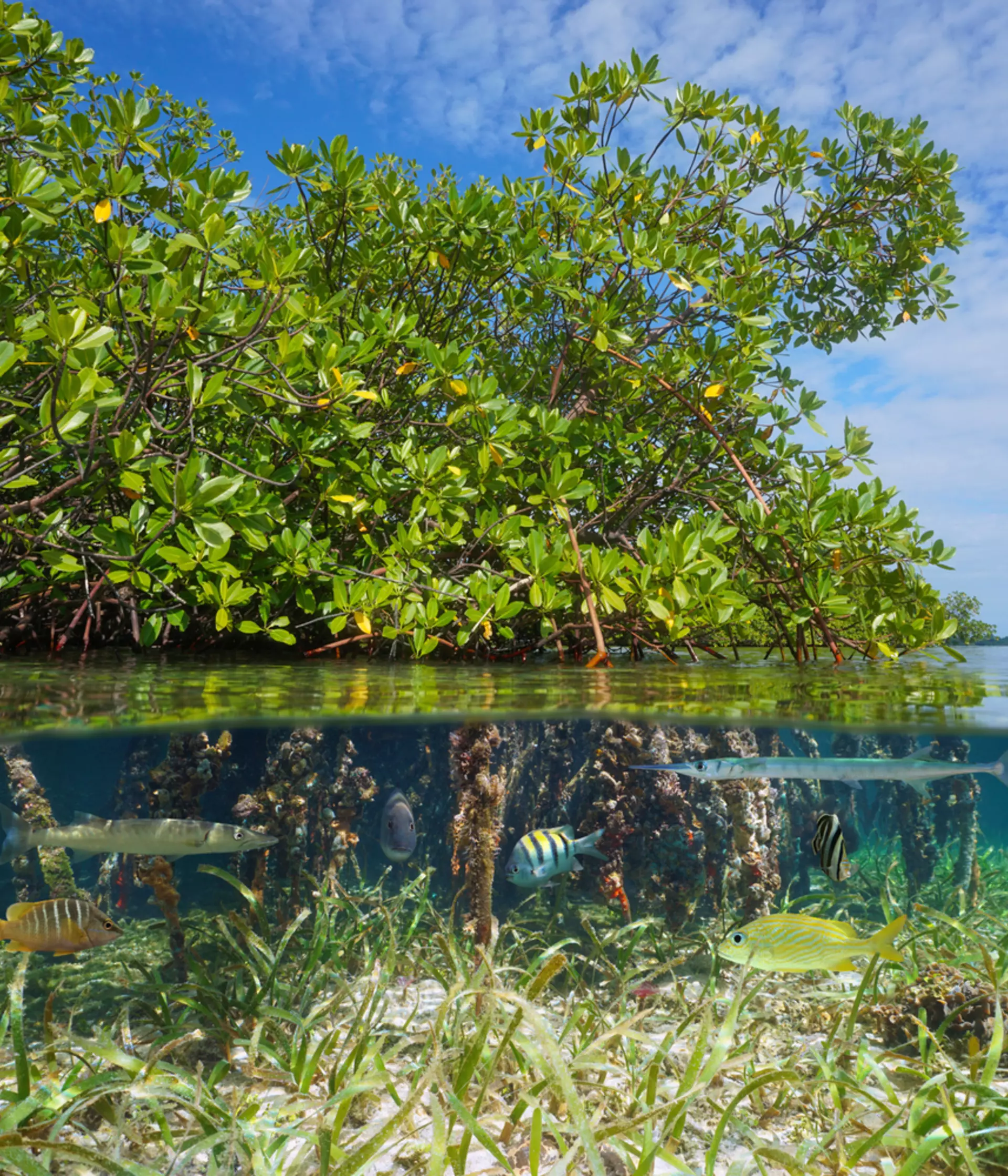Net-Works - helping communities protect wildlife
A healthy ocean equals a healthy planet, and it’s up to us all to protect and preserve our precious marine ecosystems. However, finding sustainable solutions in areas of high biodiversity and high poverty can be challenging.
Starting with the science
In 2006, Nick Hill was a PhD student here at ZSL’s Institute of Zoology, studying the effect of alternative livelihoods on fishing behaviour in the Philippines. He discovered that the decision whether to fish or engage in seaweed farming – the two most common livelihoods in coastal communities in the central Philippines - depended on access to capital, risk, food insecurity and the volatility of daily income.
During this time, our work with Project Seahorse had supported over 30 community-managed marine protected areas. These were working well but needed continued investment to sustain them. We needed to innovate.
Novel partnership
Discarded fishing nets pose a huge threat to marine wildlife – and the longevity of the materials used to create them means they have the potential to be around for centuries.
In 2011, Interface – the world’s largest manufacturer of modular flooring – was working with Aquafil – the first company to regenerate high-grade nylon yarn from waste aquaculture and industrial fishing nets. Interface invited us to explore whether coastal fishing communities in the Philippines might be an additional source of these nets and that could benefit communities and the environment.
Our community-based conservation and science expertise in the Philippines, established since 1996, combined with the business acumen of Interface, meant that we could create a hugely positive impact for both local communities and marine ecosystems.
The Net-Works™ Programme
Combining the expertise of all three partners, Net-Works™ relied on ZSL’s established relationships with communities in the Philippines to implement the project. We set up and tested the business model where communities collected, baled and transported the waste fishing nets for export. Aquafil used its ECONYL® process to turn the discarded nets into regenerated yarn and Interface provided the start-up funding, business strategy and sustained the programme.
The project enabled local communities to sell collected nets back into the global supply chain – providing Interface with high quality nylon, those communities with an income, and increased the size and management of marine protected areas.
Protecting our ocean
The Net-Works™ project worked – collecting thousands of kilos of discarded fishing nets, created improved livelihoods for fishing communities, increasing the size and sustainability of marine protected areas, and helping to support Interface’s carbon negative and social ambitions.
We anchored the business model in a community banking scheme adapted from the development sector. This enabled the communities to trade nets, build savings and insurance, increasing financial sustainability among the communities. We were also able to replicate this approach in both Cameroon and Indonesia.
We took the core elements of Net-Works™ - connecting local communities to global business and protecting the environment - and diversified to test whether it could work for seaweed farming.
Grown locally by coastal communities across southeast Asia, carrageenan from seaweed is a vital ingredient in many products from foodstuffs to fertilisers and bio-plastics.
Social enterprise Coast 4C
In recognition of this impact and potential for significant growth, the award-winning Net-Works™ programme was spun out of ZSL to create a new social enterprise called Coast 4C.
Designed to support coastal communities drive ocean and climate restoration, the enterprise focuses on four Cs - Communities, Commerce, Conservation and Climate. To have maximum impact, Coast 4C targeted the global seaweed supply chain. Coast4C aims to help local seaweed farmers build the world’s largest supply of regenerative seaweed while increasing ocean protection.
So far, Coast 4C has diverted almost 270 million metres of fishing nets from becoming plastic pollution, protected more than 5,700 hectares of ocean and supported more than 2,000 households through 86 community banks in 32 villages with its gender equitable financial inclusion work.
We are thrilled that a ZSL project that started with science, then implemented as a conservation programme has evolved into an independent enterprise with such huge conservation and business impact. We are particularly delighted that almost two decades later, Coast 4C is led by Dr Nick Hill and Amado Blanco who pioneered our early conservation efforts in the Philippines.
Restoring habitats, protecting species and creating more resilient livelihoods for local communities at the same time is a template for successful conservation the world over.
